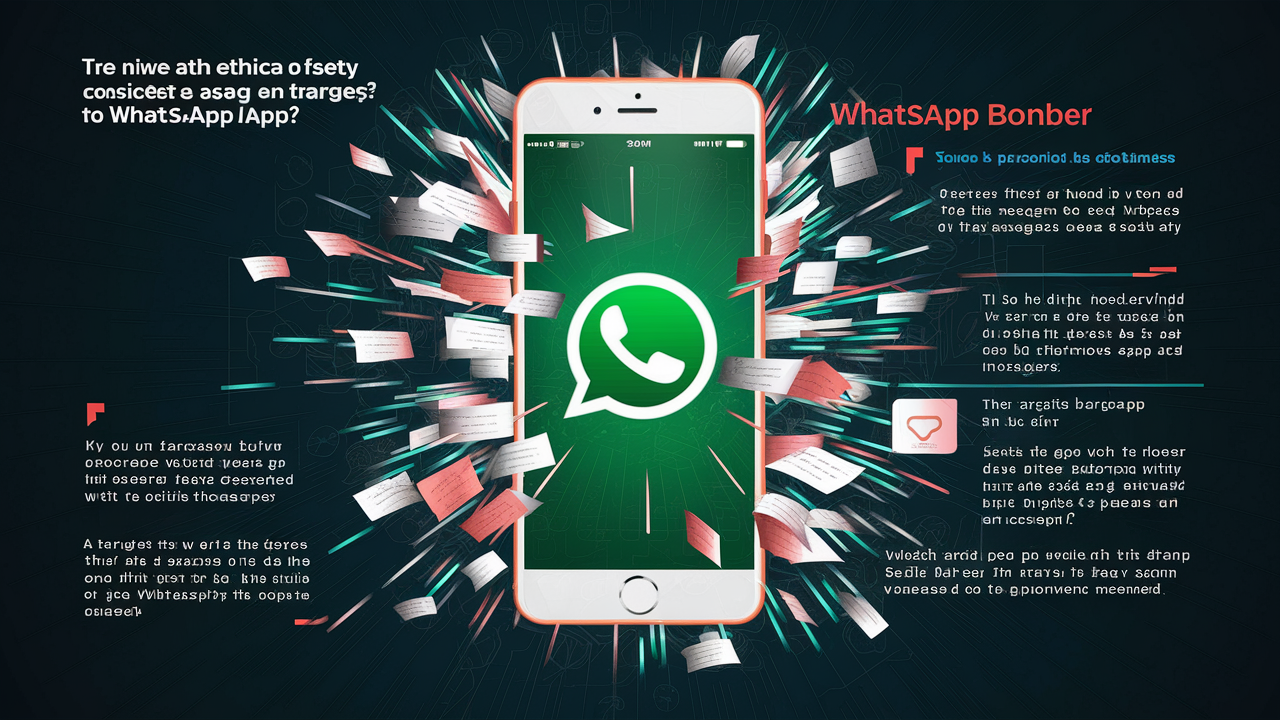Messaging apps like WhatsApp have become essential for communication, but tools like the WhatsApp Bomber (available at softdownload.in/whatsapp-bomber) are sparking curiosity—and controversy. This article explores what this tool does, its features, ethical implications, and why caution is essential before using it.
1. What Is a WhatsApp Bomber?
A WhatsApp Bomber is a software tool designed to flood a WhatsApp user’s chat with a high volume of messages, emojis, or media files in a short time. Often marketed as a “prank tool,” it automates repetitive messaging to overwhelm the recipient’s device. While some users find it amusing for lighthearted jokes, critics argue it can be easily misused for harassment, spam, or disrupting someone’s daily communication. The tool typically requires access to WhatsApp via a linked device or API, raising questions about privacy and security.
2. Key Features of WhatsApp Bomber Tools
Most WhatsApp Bomber tools offer customizable spamming options. Users can set message frequency, choose between text or multimedia content, and even schedule attacks for specific times. Advanced versions may include anonymization features to hide the sender’s identity or bypass WhatsApp’s anti-spam filters. However, these features often come with risks, such as violating WhatsApp’s terms of service, which can lead to temporary or permanent account bans.
3. How Does a WhatsApp Bomber Work?
The tool operates by exploiting WhatsApp’s messaging API or simulating user input through automated scripts. After installation, users input the target’s phone number, craft a message, and set parameters like delay intervals or repetition counts. The software then sends messages continuously until stopped. While the process sounds straightforward, it relies on bypassing WhatsApp’s security protocols, which are designed to prevent bulk messaging. This cat-and-mouse game often results in frequent updates to the tool—and potential instability.

4. Risks and Ethical Concerns
Using a WhatsApp Bomber carries significant risks. Recipients may report the spam, leading to account suspensions for both the attacker and the tool’s user. Ethically, bombarding someone’s inbox without consent crosses into harassment, especially if the content is abusive or threatening. Additionally, such tools may require permissions that compromise user data, exposing devices to malware or phishing attacks. Even as a prank, the line between humor and harm is dangerously thin.
5. Legal Implications of Misuse
In many countries, unsolicited messaging violates anti-spam laws and cybercrime regulations. For instance, India’s IT Act penalizes unauthorized access to computer systems (like WhatsApp’s servers), while the EU’s GDPR imposes strict rules on data privacy. Victims of WhatsApp bombing could pursue legal action for invasion of privacy or emotional distress. Developers and users of such tools may face fines or criminal charges, depending on jurisdiction.
6. Why Do People Use WhatsApp Bombers?
While some users deploy these tools for harmless jokes among friends, others exploit them for malicious purposes, such as intimidating rivals, disrupting businesses, or venting personal grudges. The ease of access to such software—coupled with the anonymity it provides—fuels its popularity in certain online communities. However, the lack of accountability often leads to unintended consequences, damaging relationships and reputations.
FAQ Section
Q1: Is using a WhatsApp Bomber legal?
A: In most regions, sending unsolicited bulk messages violates anti-spam laws. Misuse could result in legal action, especially if it involves harassment or data breaches.
Q2: Can WhatsApp detect and block bombing attempts?
A: Yes. WhatsApp’s algorithms flag unusual activity, such as rapid messaging, and may temporarily or permanently ban accounts involved.
Q3: How can I protect myself from a WhatsApp Bomber attack?
A: Block the sender, report the number to WhatsApp, and avoid sharing your phone number publicly. Enable two-step verification for added security.
Q4: Are there legitimate uses for such tools?
A: No. Even pranks can escalate into harassment. Ethical alternatives, like WhatsApp’s built-in features, are safer for fun interactions.
Q5: What are the consequences for developers of bombing tools?
A: Developers risk lawsuits, fines, or criminal charges for creating software that violates terms of service or privacy laws.
Conclusion
The WhatsApp Bomber from softdownload.in/whatsapp-bomber exemplifies how technology can be twisted for questionable purposes. While its novelty might attract curious users, the risks—account bans, legal trouble, and ethical dilemmas—far outweigh fleeting amusement. Responsible communication hinges on respecting boundaries and prioritizing consent. Instead of relying on disruptive tools, explore WhatsApp’s legitimate features to connect, share, and have fun without crossing lines. Always ask: Is the laugh worth the fallout?